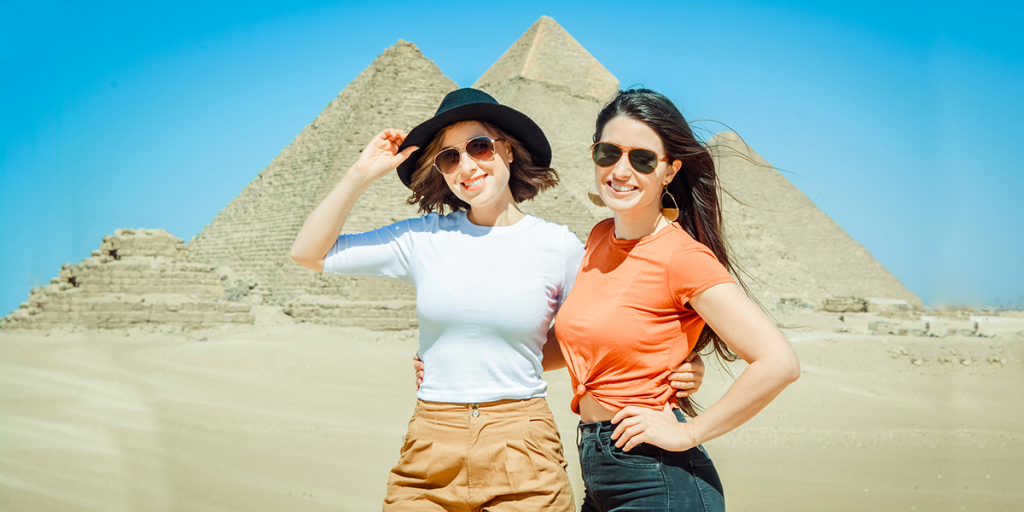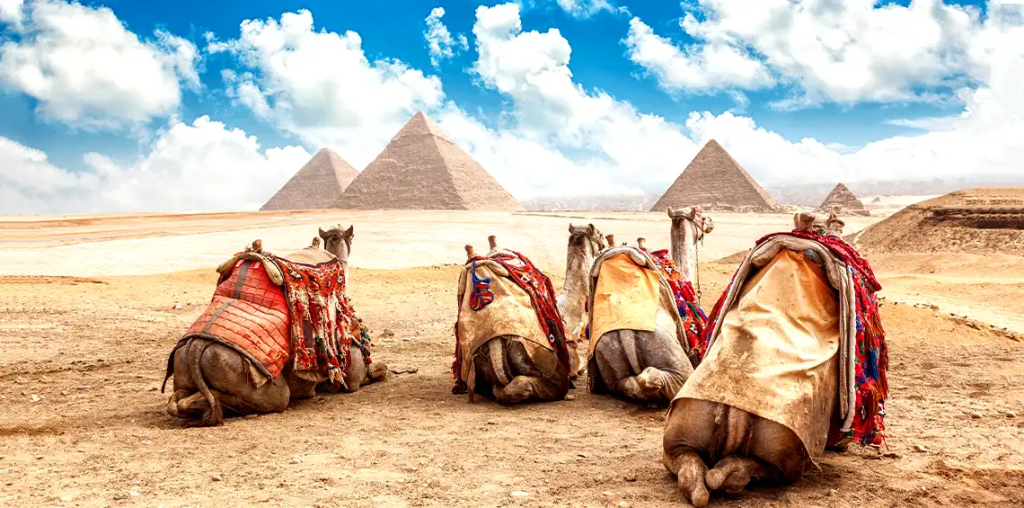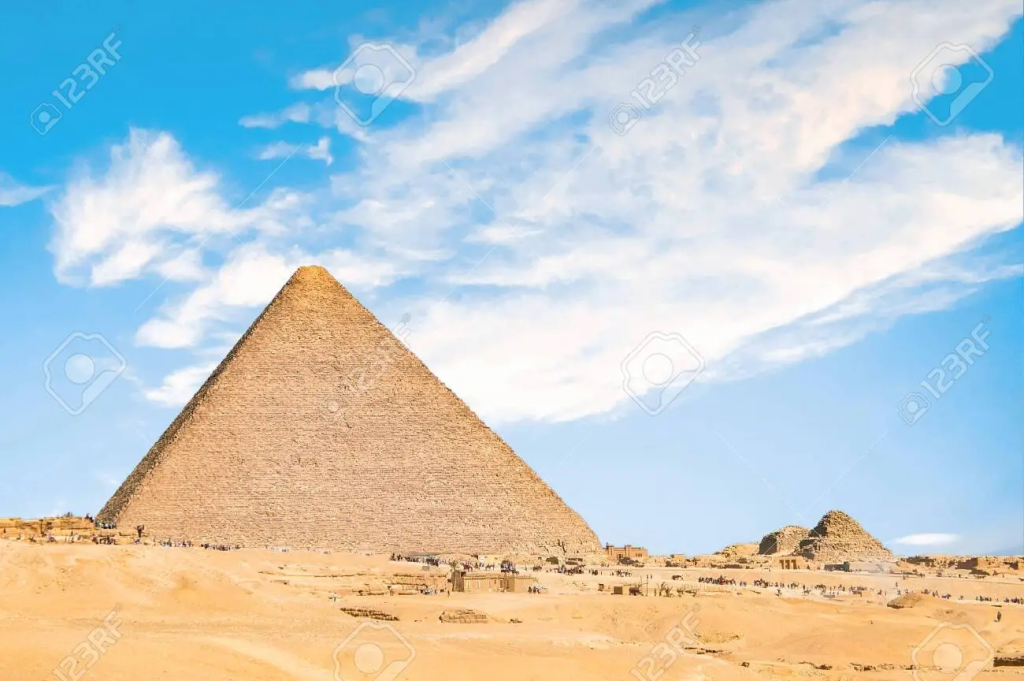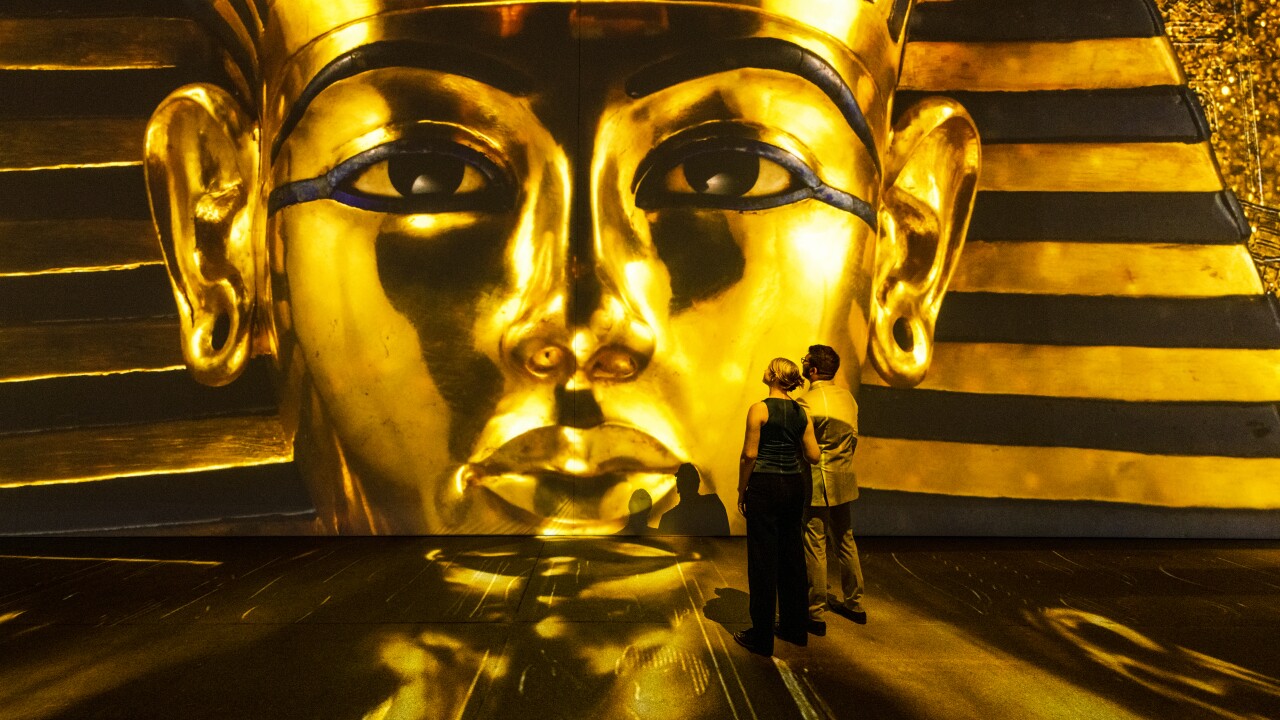
Islamic Landmarks in Egypt
Egypt’s Islamic heritage stands as a testament to the country’s enduring cultural and historical significance. Amid the Islamic golden age, while much of the world languished in the darkness of the Middle Ages, Egypt emerged as a beacon of enlightenment. Following General Amr ibn al-‘as’ conquest of Egypt in 641 AD and the establishment of Al-Fustat, later to become Cairo, the city evolved into the vibrant heart of Islamic culture for over 1,200 years. Cairo, adorned with a multitude of splendid Mosques, earned the moniker of “city of minarets” and served as an inspirational muse for countless artistic endeavors, making it a premier destination on Egypt tours.
Our reputation for excellence is a product of our meticulous booking procedures and unwavering commitment to safety guidelines. This dedication has earned us accolades, including being Certified by TripAdvisor as the Travelers’ Choice of 2022 in Egypt, winner of the Luxury Lifestyle Awards for the Best Luxury Travel Agency in Egypt in 2020, and recipient of the Africa 2020 Award for the Best Cultural Experience Tours in Egypt from the Travel & Hospitality Awards Magazine. Our numerous 5-star reviews on Feefo further underscore our commitment to quality.

Khan El Khalili Bazaar is a living testament to Cairo’s legacy as a crossroads of trade and culture. For centuries, this labyrinthine marketplace has drawn merchants and travelers from around the world, offering a captivating blend of aromas, sights, and sounds. Our guided tour invites you to immerse yourself in the bazaar’s authenticity, discover hidden gems, and interact with local artisans View Tour Details

The Muhammad Ali Mosque, also known as the Alabaster Mosque, is a stunning monument built during the 19th century by Muhammad Ali Pasha, the Ottoman ruler of Egypt. The mosque’s architectural grandeur, perched on the Citadel’s hill, offers panoramic views of Cairo and the Nile River. Our guided tour takes you through the mosque’s history, design, and significance within Cairo’s cultural fabric View Tour Details

The Salah El Din Citadel, also known as the Citadel of Cairo, is a medieval fortress that has guarded Cairo for over 800 years. Constructed by Salah El Din (Saladin), the legendary Muslim military leader, the citadel stands as a symbol of Egypt’s resilience and architectural ingenuity. Our guided tour invites you to delve into the citadel’s history, explore its significant structures, and appreciate its panoramic views of Cairo View Tour Details

The Mosque of Amr Ibn Al-Aas, located in the heart of Old Cairo, is a living testament to Egypt’s embrace of Islam shortly after the religion’s emergence. Built in 642 AD, the mosque carries the legacy of Amr Ibn Al-Aas, the Arab general who conquered Egypt. Our guided tour immerses you in the mosque’s rich history, architectural marvels, and its pivotal role in shaping Egypt’s Islamic identity View Tour Details

Al-Azhar Mosque is one of Cairo’s oldest and most revered religious sites, standing as a testament to the city’s Islamic identity and the pursuit of knowledge. Founded in 970 AD, the mosque has served as a center of learning, spirituality, and religious discourse for over a millennium. Our guided tour immerses you in the mosque’s history, architecture, and cultural significance, offering a glimpse into the heart of Cairo’s Islamic soul View Tour Details

Step into a living history book as you explore the captivating Muizz Street, a timeless thoroughfare that weaves through the heart of Islamic Cairo. Our guided tour invites you to walk in the footsteps of bygone eras, as you traverse this historic street lined with architectural marvels, ancient landmarks, and bustling markets. Join us on a journey through the ages, where the past comes alive at every corner. Read on to explore the highlights, advantages, detailed itinerary, inclusions, exclusions, pricing, tips, FAQs, and more for this immersive cultural expedition View Tour Details

Al-Hussein Mosque, also known as Al-Hussein Ibn Ali Mosque, holds a special place in Islamic Cairo’s fabric. Dedicated to the memory of Al-Hussein ibn Ali, the grandson of Prophet Muhammad, the mosque is a center of devotion, contemplation, and community. Our guided tour provides you with a deeper understanding of the mosque’s significance, its architectural beauty, and its role in the local culture View Tour Details

The Mohamed Ali Manial Palace, also known as Manial Palace, is a lavish palace complex that once served as a royal residence for Prince Mohamed Ali Tewfik, the uncle of King Farouk. This magnificent architectural marvel showcases a fusion of European and Middle Eastern design elements, offering a unique perspective on Egypt’s aristocratic history. Our guided tour takes you through the palace’s ornate chambers, lush gardens, and art-filled halls, providing a glimpse into the royal lifestyle of a bygone era View Tour Details

The City of the Dead, known as Al Qarafa, is a vast necropolis that serves as the final resting place for countless generations of Cairenes. This sprawling complex of mausoleums and tombs reveals the intersection of life and death, where families visit their ancestors, and communities thrive amidst the gravestones. Our guided tour provides insight into the rich history, cultural practices, and unique coexistence within this unconventional urban space View Tour Details
Book Now Your Tour to the Islamic Landmarks in Egypt
Immerse yourself in the rich tapestry of Cairo’s history and culture as you explore its Islamic landmarks. Walk in the footsteps of ancient scholars and seekers of knowledge as you visit iconic mosques and sites that stand as testaments to Egypt’s enduring connection with its Islamic heritage.But the journey doesn’t end there. Our Egypt Nile Cruises offer an enchanting voyage along the timeless waters of the Nile, where the stories of the pharaohs come to life against the backdrop of magnificent temples and tombs. Sail through the wonderlands of Luxor and Aswan, each bend of the river revealing new chapters of Egypt’s captivating history.

4 Days Cairo and Abu Simbel Tour Package
Embark on an unforgettable 4-day tour package to Cairo and Abu Simbel, where ancient wonders and majestic temples await. Explore the iconic sites of Cairo, including the pyramids of Giza and the Egyptian Museum, before journeying to Abu Simbel to witness the breathtaking temples of Ramses II and Nefertari. With our carefully curated itinerary, knowledgeable guides, and inclusive services, this tour offers a compact yet immersive experience of Egypt’s rich history. Discover the secrets of the pharaohs, marvel at awe-inspiring architecture, and create lasting memories View Tour Details

5 Days Cairo and Alexandria Tour Package
Embark on a 5-day journey through Egypt’s most fascinating cities, Cairo and Alexandria. From the grand pyramids and ancient temples to the coastal beauty and cultural landmarks, this tour package is designed to showcase the best of both worlds. With expert guides, comfortable accommodations, and convenient transportation, you’ll have an immersive and hassle-free experience. Join us on this captivating adventure and create memories that will last a lifetime View Tour Details

6 Days Cairo, Luxor, Aswan & Abu Simbel Package
Embark on an extraordinary 6-day journey through the heart of ancient Egypt with our Cairo, Luxor, Aswan & Abu Simbel package. Begin your adventure in Cairo, where you’ll explore the iconic pyramids and delve into the treasures of the Egyptian Museum. Continue to Luxor and Aswan, where you’ll witness the grand temples along the Nile River, and conclude your tour with a visit to the awe-inspiring temples of Abu Simbel. With expert guides, comfortable accommodations, and hassle-free transportation, this package offers a comprehensive exploration of Egypt’s historic sites. Join us on this incredible journey and unlock the secrets of the pharaohs View Tour Details

7 Days Cairo, Luxor & Alexandria Tour
Experience the best of Egypt’s cultural and coastal attractions with our 7-day Cairo, Luxor & Hurghada holiday. Begin your journey in Cairo, where you’ll discover the iconic Pyramids of Giza, explore the ancient artifacts at the Egyptian Museum, and immerse yourself in the vibrant atmosphere of Egypt’s capital. Then, travel to Luxor, often referred to as the world’s greatest open-air museum, where you’ll explore magnificent temples, tombs, and archaeological sites. Finally, unwind in the idyllic beach destination of Hurghada, known for its pristine beaches and vibrant marine life View Tour Details

8 Days Cairo, Abu Simbel, Luxor & Hurghada
Experience the best of Egypt’s ancient wonders and coastal charm on our 8-day Cairo, Abu Simbel, Luxor & Hurghada tour. From the vibrant streets of Cairo to the awe-inspiring temples of Abu Simbel and the captivating historical sites of Luxor, this itinerary offers a perfect blend of cultural exploration and relaxation. Conclude your journey in the picturesque beachside town of Hurghada, where you can unwind and soak up the sun. Join us for an unforgettable adventure through Egypt’s rich heritage and natural beauty View Tour Details

9 Days Alexandria, Cairo & Sharm El Sheikh Holiday
Experience the perfect combination of history and relaxation with our 9-day Alexandria, Cairo & Sharm El Sheikh Holiday. Begin your journey in Alexandria, where you’ll discover the Greco-Roman ruins and the impressive Bibliotheca Alexandrina. Continue to Cairo to explore the iconic pyramids, bustling markets, and historic landmarks. Finally, head to the idyllic coastal paradise of Sharm El Sheikh, where you can indulge in snorkeling, diving, or simply bask in the sun on beautiful beaches. This itinerary is designed to provide a comprehensive and memorable vacation in Egypt View Tour Details
Islamic Landmarks in Egypt FAQs
- What are some of the most important Islamic landmarks in Egypt? Some of the most important Islamic landmarks in Egypt include the Mosque of Amr Ibn Al-Aas, Al-Azhar Mosque, Sultan Hassan Mosque, Ibn Tulun Mosque, and the Citadel of Cairo.
- What is the significance of these landmarks? These landmarks are significant for their historical, architectural, and religious importance. They reflect different periods of Islamic history and culture in Egypt.
- Can non-Muslims visit Islamic landmarks in Egypt? Yes, non-Muslims are generally allowed to visit many Islamic landmarks in Egypt, especially mosques. However, visitors should dress modestly and respect the religious sanctity of the sites.
- Are there any restrictions for visitors to these landmarks? Visitors should observe proper etiquette, dress modestly, and follow any guidelines provided by the mosque authorities. Some areas within the mosques might be restricted during prayer times.
- What can visitors see inside these landmarks? Inside these landmarks, visitors can see impressive architectural designs, intricate decorations, prayer halls, courtyards, minarets, and often, historical artifacts.
- Are guided tours available for these landmarks? Yes, guided tours might be available for many Islamic landmarks. Local guides can provide insights into the history, architecture, and cultural significance of these sites.
- Is there an entrance fee to visit these landmarks? Some landmarks might have an entrance fee for tourists, while others might be free or have a nominal fee. Prices can vary, so it’s recommended to check in advance.
- Are these landmarks illuminated at night? Many Islamic landmarks, especially mosques, are often beautifully illuminated at night, creating a stunning view and atmosphere.
- Is photography allowed inside these landmarks? Photography regulations may vary, but in general, photography is often allowed inside these landmarks. It’s recommended to follow any guidelines provided by the authorities.
- What transportation options are available to reach these landmarks? Visitors can reach these landmarks by various means, including taxis, public buses, and guided tours. Most are located within or near major cities like Cairo.
- How do these landmarks contribute to Egypt’s cultural heritage? These landmarks contribute to Egypt’s cultural heritage by preserving the country’s rich Islamic history, architectural achievements, and religious practices.
- Are there specific dress codes for visiting these landmarks? While there might not be strict dress codes, visitors are advised to dress modestly when entering mosques or religious sites. Both men and women should cover their shoulders and knees.
- Can visitors attend prayers at these landmarks? Yes, visitors are often welcome to attend prayers at these landmarks. However, they should observe proper etiquette and respect the customs of the mosque.
- How do these landmarks foster interfaith understanding and dialogue? These landmarks provide opportunities for people of different faiths to learn about Islamic culture, history, and practices. They can serve as bridges for interfaith dialogue and understanding.
- Are there any cultural events or festivals held at these landmarks? Some Islamic landmarks might occasionally host cultural events, exhibitions, or festivals that celebrate Egypt’s heritage, art, and culture.
- What is the best time to visit these landmarks? The cooler months of fall and spring are generally more comfortable for exploring these landmarks. However, they can be visited year-round.
- What other attractions are near these Islamic landmarks? These landmarks are often located near other historic sites and landmarks. For example, Al-Azhar Mosque is near the Khan El Khalili market, offering a broader cultural experience.
- Can visitors learn about the history of these landmarks on-site? Information about the history of these landmarks might be available on-site through informational plaques, exhibits, or guides who can provide insights.
- How do these landmarks impact Egypt’s tourism industry? These landmarks are major attractions that draw tourists interested in history, architecture, and culture. They contribute significantly to Egypt’s tourism industry.
- What is the connection between these landmarks and Egypt’s identity? These landmarks are integral to Egypt’s identity as a diverse and historically rich nation. They showcase the country’s role in Islamic history, culture, and civilization.

